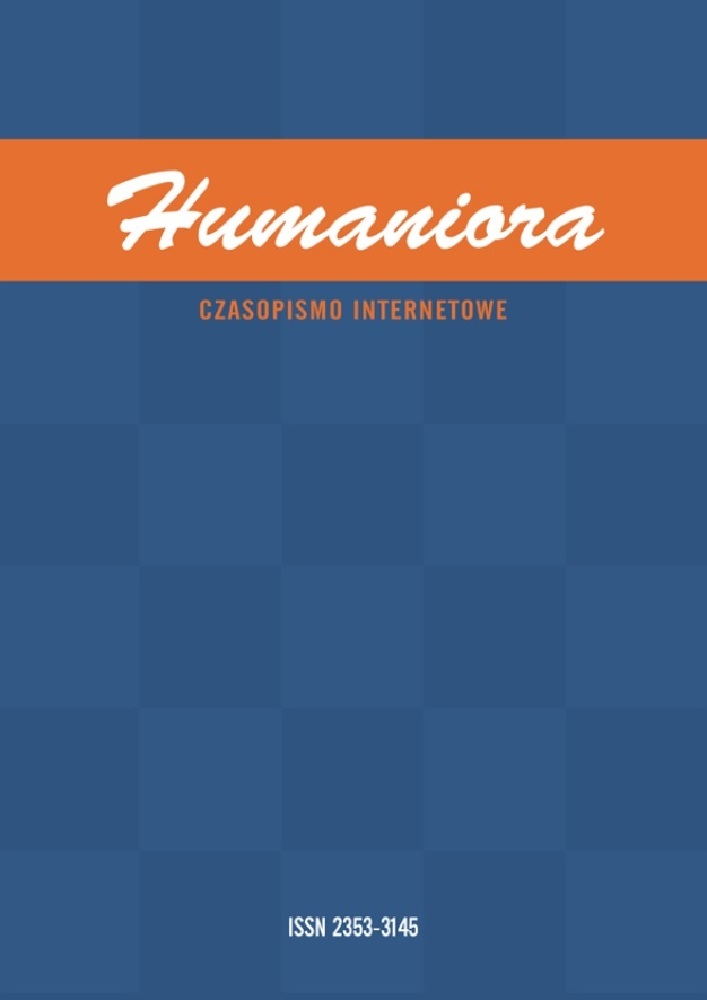Abstract
In ancient times, protreptics encouraged to something and directed the attention towards a goal. Their aim was often to change behaviour. Using this ancient form, the article is an incentive to restore thinking’s primary function in culture. The key threats, which have appeared in the culture of technology, have been presented. Increasingly, it is believed (also at universities) that a human being only needs information, preparation for the market, and he needs neither the meaning nor understanding of the information, nor the philosophical reflection. Thinking itself – following the example of John Dewey – is only associated with an increase in productivity. However, without concern for thinking and restoring its sapiential dimension, culture is threatened by infantilism and the loss of the meaning of our existence.
References
Arendt H., Myślenie, tłum. H. Buczyńska-Garewicz, Czytelnik, Warszawa 1991.
Arendt H., Życie umysłu, tłum. H. Buczyńska-Garewicz, R. Piłat, B. Baran, Aletheia, Warszawa 2016.
Bocheński I.M., Logika i filozofia, Wydawnictwo Naukowe PWN, Warszawa 1993.
Cyceron M.T., O mówcy, tłum. B. Awianowicz, Wydawnictwo Marek Derewiecki, Kęty 2010.
Dewey J., Demokracja i wychowanie, tłum. Z. Bastgen, Książka i Wiedza, Warszawa 1963.
Drozdowicz Z., Od pseudonaukowości do naukowości, Wydawnictwo Nauk Społecznych i Humanistycznych UAM, Poznań 2022.
Eco U., Imię róży, tłum. A. Szymanowski, PIW, Warszawa 1987.
Hadot P., Filozofia jako ćwiczenie duchowe, tłum. P. Domański, IFiS PAN, Warszawa 1992.
Heidegger M., Co zwie się myśleniem, tłum. J. Mizera, Wydawnictwo Naukowe PWN, Warszawa–Wrocław 2000.
Heidegger M., Drogi lasu, tłum. J. Gierasimiuk i in., Fundacja Aletheia, Warszawa 1997.
Hesse H., Im dojrzalsi, tym młodsi. Refleksje i wiersze o starości, tłum. A. Kryczyńska, Wydawnictwo KR, Warszawa 2000.
Novak M., Boga nikt nie widzi. Noc ciemna ateistów i wierzących, tłum. M. Pasicka, Kraków 2010.
Pascal B., Myśli, tłum. T. Żeleński (Boy), Instytut Wydawniczy Pax, Warszawa 1952.
Petitcollin Ch., Jak mniej myśleć. Dla analizujących bez końca i wysoko wrażliwych, tłum. K. Arustowicz, Feeria Wydawnictwo, Łódź 2019.
Platon, Gorgias. Menon, tłum. P. Siwek, Wydawnictwo Naukowe PWN, Warszawa 1991.
Reuterer A., Die globale Verdummung. Zum Untergang verurteilt? Mit einer Zitatensammlung zum Thema Dummheit, Spronger, Wien 2005.
Schnädelbach H., Próba rehabilitacji animal rationale. Odczyty i rozprawy 2, tłum. K. Krzemieniowa, Oficyna Naukowa, Warszawa 2001.
Skarga B., Człowiek agatologiczny, w: Pytając o człowieka – myśl filozoficzna Józefa Tischnera, red. W. Zuziak, Znak, Kraków 2001.
Symotiuk S., „Głupota” jako temat literacki i filozoficzny, „Przegląd Humanistyczny” 1991, 3–4.
Tomasello M., Historia naturalna ludzkiego myślenia, tłum. B. Kucharczyk, R. Ociepa, Copernicus Center Press, Kraków 2015.
Tullii Ciceronis M., Opera, no. 1–2, Scholiastae, Turici 1833.
Twardowski K., Myśl, mowa i czyn, Copernicus Center Press, Kraków 2013.
Z mądrości Talmudu, wybór i tłum. Sz. Datner, A. Kamieńska, PIW, Warszawa 1988.
License
Czasopismo oraz wszystkie zamieszczone w nim materiały są powszechnie dostępne i mogą być wykorzystywane do celów naukowych, edukacyjnych, poznawczych i niekomercyjnych bez konieczności uzyskiwania każdorazowej zgody autorów i redakcji. Nadesłanie artykułu do publikacji traktowane jest jako zgoda autora na udostępnienie swojej pracy i informacji w niej zawartych do powyżej wymienionych celów. W takich przypadkach należy jedynie wskazać źródło, z którego zaczerpnięte zostały informacje. Pobieranie opłat za dostęp do materiałów zawartych w czasopiśmie lub ograniczanie do niego dostępu jest zabronione.
Przesyłane do redakcji teksty muszą stanowić oryginalne prace, uprzednio nigdzie niepublikowane ani nie przedkładane innym redakcjom lub wydawcom. Autorzy nadsyłanych artykułów ponoszą odpowiedzialność za uzyskanie zezwoleń na publikowanie materiałów, do których prawa autorskie są w posiadaniu osób trzecich. Publikacja materiałów chronionych prawem autorskim jest możliwa pod warunkiem uprzedniego dostarczenia przez autora do redakcji pisemnej zgody właściciela praw autorskich.





